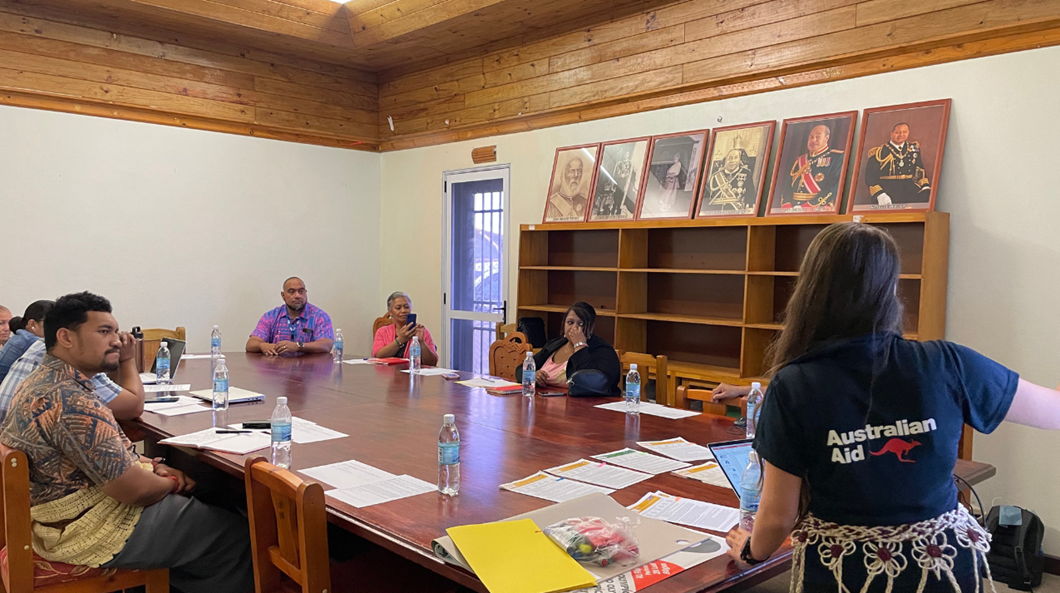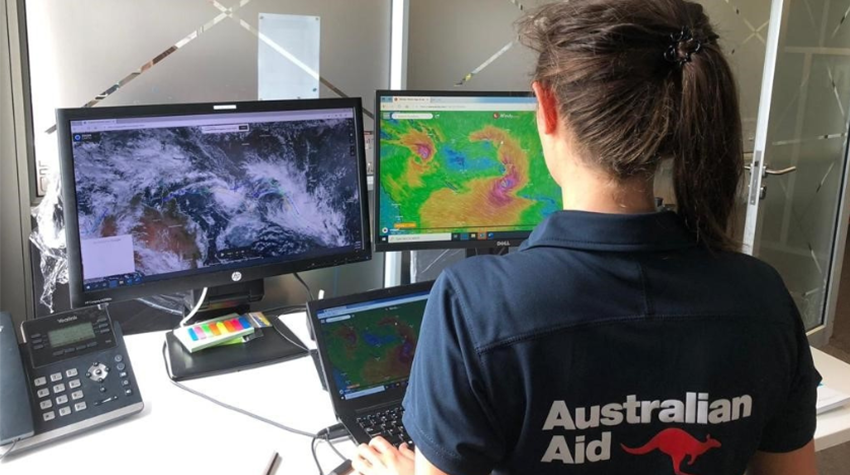Australia Assists deployee Jess is one of the 150 experts deployed to the Pacific since 2017 to support disaster preparedness and response. Australia Assists is the Australian Government’s humanitarian deployment program implemented by RedR Australia.
Jess tells us, “I think the importance of Australia Assists is that it fills necessary gaps, due to funding and staffing shortages. If Australia Assists hadn’t been able to send a Protection deployee to UN Women, no one would be coordinating essential protection work”. She explains “the risk to women and children, persons with disabilities, LGBTIQ+ people, and others with vulnerabilities is increased in times of disaster. So, it is really valuable to fill the protection role. The task in disasters is just huge.”
Originally deployed in response to Tropical Cyclone Harold and COVID-19, Jess’ work with UN Women in Fiji was extended so that she could support protection coordination in more than 20 emergencies.
Jess joined UN Women in Fiji as an Australia Assists deployee in 2020. The multiple extensions of Jess’ original term demonstrate the value expert deployees can bring to the organisations they support.
Mainstreaming gender in regional humanitarian preparedness
As a regional UN Women Protection Advisor, Jess supported national protection committees and clusters across the Pacific to better mainstream gender and protection in humanitarian preparedness and action. To help achieve this across the sector, Jess worked closely with governments, humanitarian clusters including other UN agencies and regional and national coordination mechanisms.
“Technical advice and capacity strengthening of government and protection partners improves the quality and timeliness of response offered to the affected communities in disaster time,” says Jess. “It also helps to ensure that quality preparedness activities are completed before cyclone season. If communities are more prepared and resilient, the impact of the inevitable disasters will be reduced.”
Her deployment commenced as part of the Tropical Cyclone Harold response, which devastated access to shelter, water and communications for thousands of people across Vanuatu, Fiji, Tonga and the Solomon Islands. As this was during the height of the COVID-19 pandemic, the response navigated compounded challenges and the gender-related hazards included an increased risk of intimate partner violence, difficulties for women accessing food and shelter, and the impact of the pandemic on the livelihoods of women farmers and market vendors.
As travel too was curtailed by COVID-19 restrictions, Jess started working remotely from Melbourne to support the work of UN Women. She focused on supporting the development of gender and socially inclusive disaster preparedness, response and recovery actions, ensuring that data was disaggregated by gender so that the different experiences of men and women, boys and girls and gender diverse populations would be revealed; and providing technical advice on gender and protection to the Pacific Protection cluster and the Pacific Humanitarian Team to support their preparations and response.
Applying skills to new emergencies
 Australia Assists deployee Jess working with colleagues in Fiji.
Australia Assists deployee Jess working with colleagues in Fiji.
By the end of her deployment in 2023, Jess had contributed to more than 20 emergency responses across 14 Pacific countries, including cyclones, volcanoes, tsunamis, king tide floods, droughts and multiple waves of COVID-19.
“Successfully coordinating the Protection cluster through multiple emergencies has meant that groups that are more vulnerable in disasters, such as women, children, persons with disabilities, and LGBTIQ+ people, have been more effectively reached by the response - no one left behind,” explains Jess.
A legacy of stronger systems
While Jess’ technical assistance has been invaluable, she has also worked to ensure that her knowledge has been shared, making gender and protection expertise more sustainable.
Throughout her time in the Pacific, Jess supported colleagues with daily mentoring, and ran protection-related trainings on topics such as Gender in Humanitarian Action, Disability Inclusion, LGBTIQ+ Inclusion, Gender and Data, Psychological First Aid, Protection and Protection Mainstreaming. Localisation is key to sustainability. “Wherever possible,” says Jess, “I made sure that these trainings were led or co-led by Civil Society Organisations.”
Disability inclusion and LGBTIQ+ inclusion is really important and gaining recognition across humanitarian responses globally. To help strengthen these themes in the Pacific, Jess worked to put local organisations front and centre. “I ensured that regional NGO and national NGO voices guided Pacific Humanitarian Protection Cluster (PHPC) work, planning and capacity building,” explains Jess. “For example, I arranged two trainings for PHPC members. One on Disability Inclusion and one on LGBTIQ+ Inclusion in Humanitarian Action. In each case I had the leading NGO in the space host the trainings: Pacific Disability Forum and Rainbow Pride respectfully. I made sure that their lived experience also played a key role in content development.”
Supporting our Pacific neighbours is a major priority for the Australian Aid Plan and Australia Assists is proud to build on this plan and support the region with hundreds of skilled deployees like Jess.
Read more about the inspiring technical experts representing Australia Assists.


